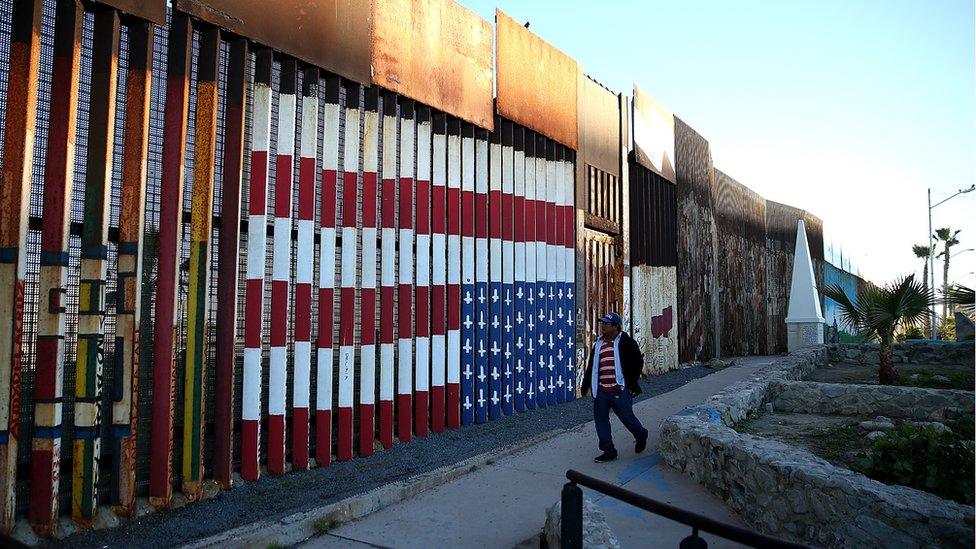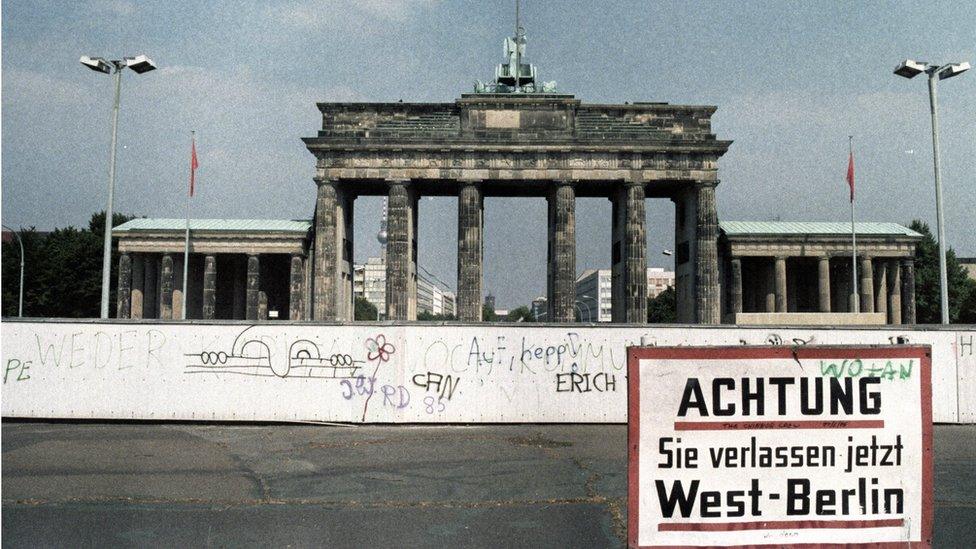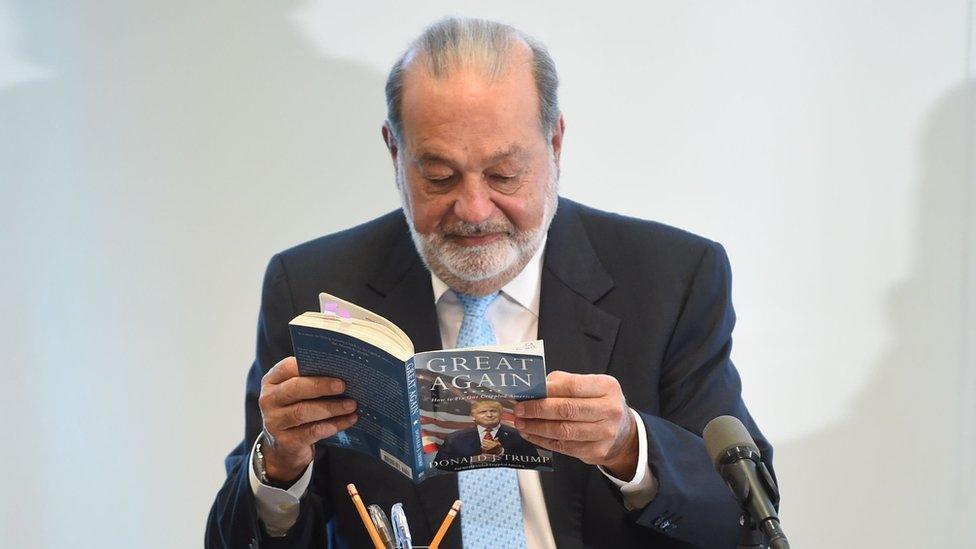Trump Mexico wall will destroy lives, Berlin mayor warns
- Published

The mayor of Berlin warned Mr Trump that walls can "destroy the lives of millions"
Berlin Mayor Michael Mueller has urged US President Donald Trump "not to go down the road of isolation" with his planned border wall with Mexico.
Mr Mueller warned such divides cause "slavery and pain" and would "destroy the lives of millions".
The German city was divided by the Berlin Wall from 1961 to 1989.
Mr Mueller's statement came as Mr Trump and Mexican President Enrique Pena Nieto agreed to "work out their differences" over the issue.
The planned wall was one of Mr Trump's key election campaign pledges, but it has cast a shadow over the US's relationship with its neighbour.
Mr Pena Nieto has repeatedly stated that Mexico will not pay for the wall and has condemned a US suggestion that it may impose a 20% tax on his country's imports to finance the structure.

The Berlin Wall (pictured in 1986) divided the city from 1961 to 1989
"We Berliners know best how much suffering was caused by the division of an entire continent," Mr Mueller said in a statement, referring to Europe's "Iron Curtain".
He said the city could not "silently look on as a country sets about building a new wall".
"We cannot let our historical experience get trashed by the very people to whom we owe much of our freedom: the Americans.
"I call on the president not to go down the road of isolation," the statement reads, external (in German). "Mr President, don't build this wall."
A strategic relationship
At a joint news conference on Friday at the White House with the British Prime Minister, Theresa May, Mr Trump said he had had a "very good call" with Mr Pena Nieto.
The White House later released a statement describing the telephone conversation as "productive and constructive", adding that both presidents recognised the "differences of positions" on the issue of the proposed wall.

Read more

"Both presidents have instructed their teams to continue the dialogue to strengthen this important strategic and economic relationship," the statement said.
He did not reveal the subject of the conversation with Mr Nieto when questioned at the White House, but said the US was "no longer going to be the country that doesn't know what it's doing".

The new order? - Anthony Zurcher, BBC News North America Reporter
Welcome to a brave new world of international diplomacy, Donald Trump style.
The new president seems determined to run foreign policy the way he handled his business empire and public interactions - vying for dominance and exploiting weakness.
Recalcitrant clients were either denied payment or sued. Personal adversaries were mocked. Political foes were demeaned.
On the international stage, we see these attitudes playing out in Mr Trump's goading, belligerent remarks directed at Mexico and its president. With a gross domestic product that's a fraction of the US's, Mexico is the Rosie O'Donnell or "Little Marco" Rubio on Mr Trump's world stage.
Contrast that with the president's deferential treatment of Russia's Vladimir Putin or British PM Theresa May during her recent White House visit.
When it comes to foreign relations, Mr Trump respects strength and tradition. His admiration for Winston Churchill is not so different from past praise of General George Patton or actor John Wayne - strong men from a different era.
Mr Trump was elected because voters - particularly blue-collar workers - believed he would fight for them and economic benefits would follow. His critics warned his temperament would disrupt global order.
We'll eventually find out who was right.

Mexico's increasing nervousness over its northern neighbour appears to have prompted Mexico's richest man to step in.

Mexican billionaire Carlos Slim acknowledged Mr Trump was a good negotiator, but 'not Terminator'
In a rare news conference, Carlos Slim said Mr Trump - who he spoke out against during the campaign, but has since had dinner with - is a good negotiator, but "he is not Terminator".
Mr Slim, who has offered to help his government negotiate with Mr Trump, added that he believed "the circumstances in the United States are very favourable for Mexico", and policies aimed at boosting the US economy would also help Mexico.
He also said he expected Trump's "hyperactivity" to cool down with time.